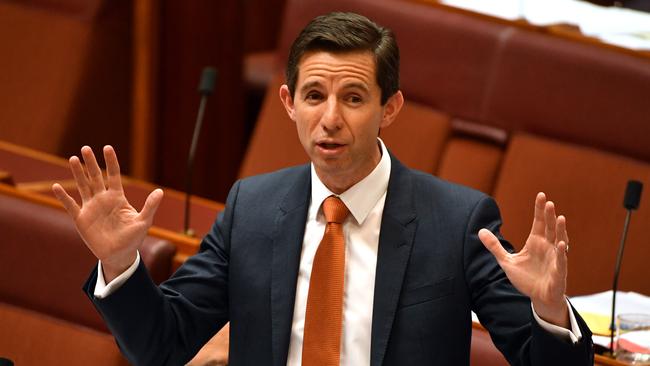Education reform hopes fading
Key crossbencher Nick Xenophon preoccupied with negotiating media reforms, dealing blow to $2.8 billion reforms.

The Turnbull government’s hopes of securing Senate backing for its $2.8 billion higher education reforms this week are fading after key crossbencher Nick Xenophon said he had been preoccupied with negotiating media reforms.
The government’s proposed university changes will continue to be debated in the House of Representatives today and are on track to pass the lower house where the Coalition has a slim majority.
The reforms would impose a 2.5 per cent efficiency dividend on the nation’s universities over the next two years and increase course fees for students.
Labor and the Greens are opposed to the overhaul which means when the changes head to the upper house Education Minister Simon Birmingham must lock-in 10 of the 12 Senate crossbench votes. Senator Xenophon’s Nick Xenophon Team (NXT) commands three critical Senate swing votes.
But negotiations on the tertiary changes have taken a back seat this week as the government sensed the chance of a breakthrough on media reforms and has been haggling over the details.
Asked whether the NXT senators were ready to back the higher education changes, Senator Xenophon said: “No we can’t. But, of course, we’ll have further discussions with the government.’’
“We have concerns about a number of aspects of the package. I’ve been preoccupied with media reform morning, noon and night in the last few days,’’ Senator Xenophon told the ABC.
“Obviously, that’s something that once the issue of media reform has been dealt with happy to sit with the government but concerns about the cuts to research if we want to drive our economy as an advanced manufacturing nation in terms of research, cutting research is not going to be good to drive jobs in this country.’’
Federal parliament rises on Thursday night and the Senate is not due to sit again until October 13.
Under the changes, university graduates would be forced to begin repaying their Higher Education Loan Program (HELP) debt when their income reaches $42,000 a year capturing an extra 200,000 graduates.
The repayment schedule will also change, and repayments will begin at 1 per cent, or $420 a year but rise to 10 per cent on incomes of more than $119,882.
Students currently start repaying 4 per cent of their income once they earn more than $55,874, which is slated to reduce to $51,000 next year.
Students will also pay more for their degrees with staggered incremental fee increases which will increase the cost of a degree by 7.5 per cent over four years. It means students, who currently contribute about 42 per cent of the cost of their degree on average, will contribute 46 per cent. The most expensive courses such as law or medicine will increase by $3,600 for a four-year course by 2021.
A 2.5 per cent efficiency dividend will also be imposed on universities in 2018 and 2019. And, 7.5 per cent of university course funding or about $500 million a year, will be tied to performance improvements.


